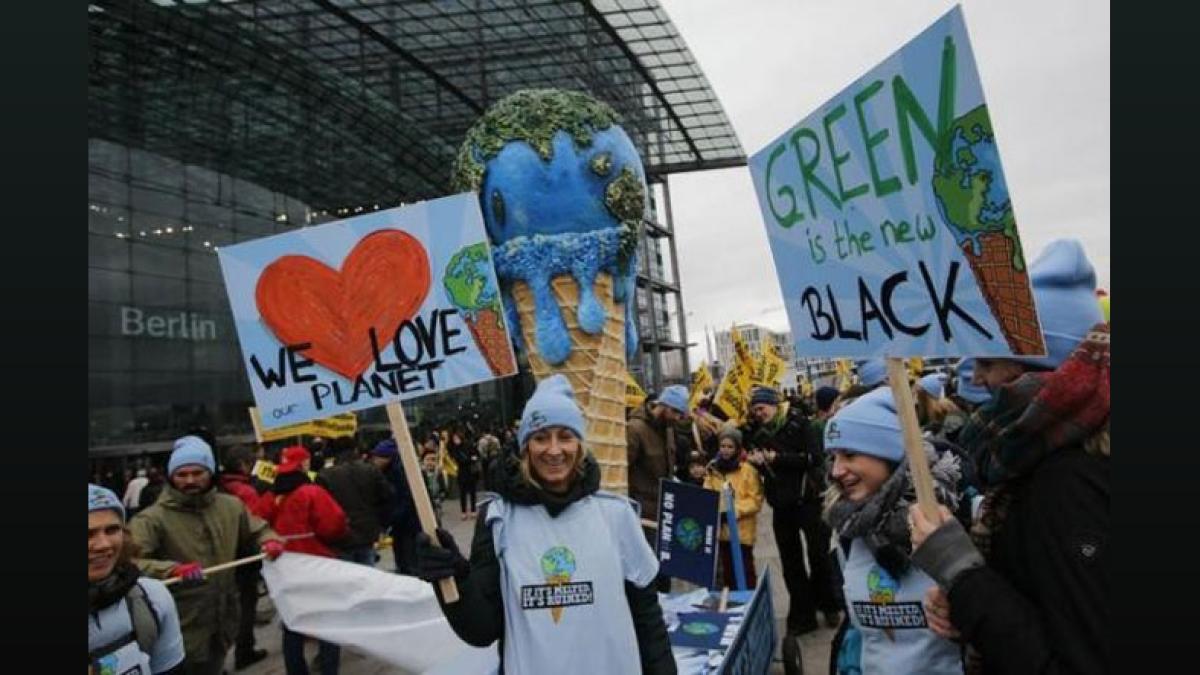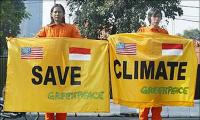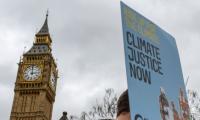India Should Not Take New Commitments at COP28: GTRI
GTRI suggests India should not take new commitments at COP28 climate talks in Dubai, highlighting the country's significant green transition efforts and the need for developed countries to shoulder historical emissions responsibility.

New Delhi, Nov 30 (PTI) India should not take new commitments at the ongoing United Nations COP28 climate talks in Dubai and continue its green transition without additional assurances, think tank GTRI suggested on Thursday.
The climate conference is being held at the Dubai Expo City from November 30 to December 12.
The Global Trade Research Initiative (GTRI) said that India has already made significant commitments at COP27 (Conference of Parties) and the Paris Agreement, aligning with its Long-term Low Emissions and Development Strategy.
India's commitment to generating half of its electricity from non-fossil fuel sources by 2030 and achieving net-zero emissions by 2070 is noteworthy.
"At COP28 India need not take new commitments at COP28. Instead, it may continue its green transition without additional commitments," GTRI Co-Founder Ajay Srivastava said.
However, he added that the country's high methane emissions, especially from the agriculture sector, pose a challenge.
"Any improvement will require changing crop pattern which may take decades of effort. Balancing emission reduction with the livelihood impact on the agriculture sector is crucial," Srivastava said.
The think-tank also suggested that as 70 per cent of electricity is generated from coal power here and many large industries rely on captive and not grid power, India needs to improve on these.
"However, India should not agree to an immediate shutdown of coal-fired power plants to ensure energy security. India must highlight that developed countries are responsible for 89 per cent of historical emissions. They subsidized the fossil fuel industry with USD 1.8 trillion in 2020," it said.
It added that India should advocate for broadening the scope of climate discussions to address these interconnected challenges, fostering a more effective approach to climate action.
Further, it said that despite fifty years of international efforts, annual GHG (greenhouse gas emissions) emissions have increased by 270 per cent, reaching 53.8 billion metric tons of CO2 equivalent in 2022.
"The rising GHG emissions underscore the insufficiency of current efforts to meet the agreement's goals. Highlighting this will be the focus of COP28," it said adding India's role at COP28 is crucial, given its status as a developing nation and the third largest emitters of carbon dioxide gases after China and the US.
But India must emphasise the fact that its per capita CO2 emissions at 1.9 tons are "very" low, far lower than the USA (14.5) and China (8.9) those of all developed countries and China, it said.
"Large population converts even low per capita emissions into big total, India cannot be punished for being a large population. COP28 obligations must be tied up with per capita emissions and not a country's total emissions," Srivastava said.
International trade expert and former government official Sangeeta Godbole said that unlike in the trade space, India has shown leadership and set the agenda for climate action.
"Indian positions will carry if it demonstrates significant climate ambition and actually deliver on it," she said.
The climate conference is being held at the Dubai Expo City from November 30 to December 12.
The Global Trade Research Initiative (GTRI) said that India has already made significant commitments at COP27 (Conference of Parties) and the Paris Agreement, aligning with its Long-term Low Emissions and Development Strategy.
India's commitment to generating half of its electricity from non-fossil fuel sources by 2030 and achieving net-zero emissions by 2070 is noteworthy.
"At COP28 India need not take new commitments at COP28. Instead, it may continue its green transition without additional commitments," GTRI Co-Founder Ajay Srivastava said.
However, he added that the country's high methane emissions, especially from the agriculture sector, pose a challenge.
"Any improvement will require changing crop pattern which may take decades of effort. Balancing emission reduction with the livelihood impact on the agriculture sector is crucial," Srivastava said.
The think-tank also suggested that as 70 per cent of electricity is generated from coal power here and many large industries rely on captive and not grid power, India needs to improve on these.
"However, India should not agree to an immediate shutdown of coal-fired power plants to ensure energy security. India must highlight that developed countries are responsible for 89 per cent of historical emissions. They subsidized the fossil fuel industry with USD 1.8 trillion in 2020," it said.
It added that India should advocate for broadening the scope of climate discussions to address these interconnected challenges, fostering a more effective approach to climate action.
Further, it said that despite fifty years of international efforts, annual GHG (greenhouse gas emissions) emissions have increased by 270 per cent, reaching 53.8 billion metric tons of CO2 equivalent in 2022.
"The rising GHG emissions underscore the insufficiency of current efforts to meet the agreement's goals. Highlighting this will be the focus of COP28," it said adding India's role at COP28 is crucial, given its status as a developing nation and the third largest emitters of carbon dioxide gases after China and the US.
But India must emphasise the fact that its per capita CO2 emissions at 1.9 tons are "very" low, far lower than the USA (14.5) and China (8.9) those of all developed countries and China, it said.
"Large population converts even low per capita emissions into big total, India cannot be punished for being a large population. COP28 obligations must be tied up with per capita emissions and not a country's total emissions," Srivastava said.
International trade expert and former government official Sangeeta Godbole said that unlike in the trade space, India has shown leadership and set the agenda for climate action.
"Indian positions will carry if it demonstrates significant climate ambition and actually deliver on it," she said.
You May Like To Read
TODAY'S MOST TRADED COMPANIES
- Company Name
- Price
- Volume
- Vodafone-Idea-L
- 11.65 (+ 3.56)
- 106772451
- Alstone-Textiles
- 0.28 ( -3.45)
- 44187760
- Mangalam-Industrial
- 0.88 ( -2.22)
- 39177573
- Sunshine-Capital
- 0.27 (+ 3.85)
- 35956340
- GMR-Airports
- 104.40 (+ 6.37)
- 30453005





